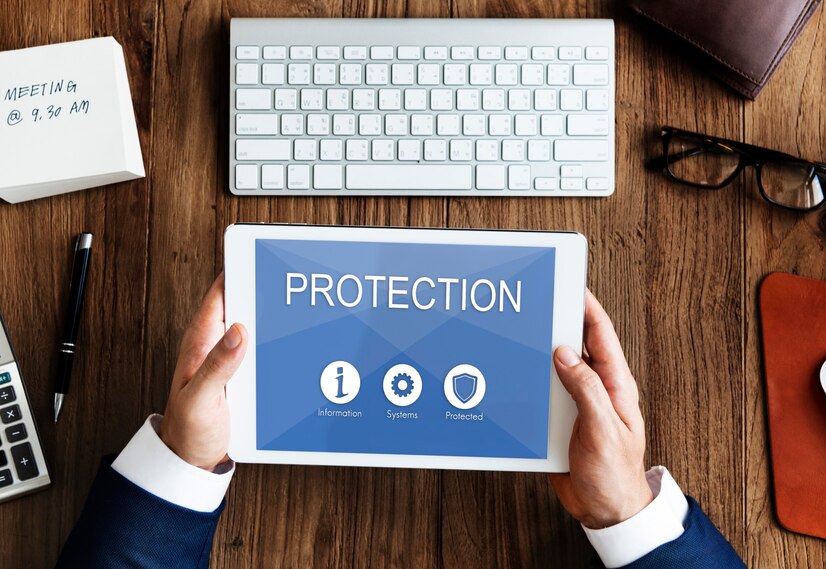In today’s digital age, where almost everything is done online, protecting your privacy and personal information has become more crucial than ever.
With the increasing number of cyber threats and data breaches, it is essential to take proactive steps to safeguard your online privacy.
This article will provide you with valuable tips and strategies to help you protect your personal information while browsing the internet.
1. Use Strong and Unique Passwords
One of the simplest yet most effective ways to protect your online accounts is by using strong and unique passwords. Avoid using common passwords like “123456” or “password”, as they are easily guessable by hackers.
Instead, create complex passwords that include a combination of letters, numbers, and special characters. Furthermore, make sure to use different passwords for each of your online accounts to prevent a single security breach from compromising all of your accounts.
Using a password manager can also help you generate and store strong passwords for all your accounts securely. Additionally, enabling two-factor authentication adds an extra layer of security by requiring a second form of verification, such as a code sent to your phone.
Online privacy protection safeguards personal information online, preventing unauthorized access or misuse and ensures confidentiality in the digital realm.
Regularly updating your passwords and being cautious of phishing attempts can further enhance the security of your online accounts. Remember, taking these simple steps can go a long way in protecting your sensitive information from cyber threats.
2. Enable Two-Factor Authentication
Two-factor authentication adds an extra layer of security to your online accounts by requiring a second form of verification, such as a code sent to your phone or email, in addition to your password.
This additional step makes it significantly harder for hackers to access your accounts, even if they have obtained your password through a data breach.
Enable two-factor authentication whenever possible, especially for accounts that contain sensitive information.
3. Be Cautious When Sharing Personal Information
Be mindful of the information you share online, especially on social media platforms. Avoid posting sensitive information such as your full name, address, phone number, or financial details publicly. Review the privacy settings on your social media accounts and limit the amount of personal information visible to others.
Additionally, be cautious when responding to messages or emails that request personal information, as they could be phishing attempts by cybercriminals. Always think twice before sharing personal information online.
Stay vigilant and protect yourself from potential identity theft or fraud by being cautious and selective about what you share on the internet. Be proactive in safeguarding your privacy and digital security.
4. Use a Virtual Private Network (VPN)
A Virtual Private Network (VPN) encrypts your internet connection and masks your IP address, making it more difficult for third parties to track your online activities.
By using a VPN, you can browse the internet anonymously and protect your data from potential hackers or surveillance. Choose a reputable VPN provider with a no-logs policy to ensure that your online activities remain private and secure.
A Virtual Private Network (VPN) encrypts your internet connection and masks your IP address, making it more difficult for third parties to track your online activities.
By using a VPN, you can browse the internet anonymously and protect your data from potential hackers or surveillance. It is important to choose a reputable VPN provider with a strict no-logs policy to ensure that your online activities remain private and secure.
Look for VPN services that offer strong encryption, a large server network, and good customer support to enhance your online privacy and security.
5. Keep Your Devices and Software Updated
Regularly updating your devices, operating systems, and software is essential for maintaining the security of your online accounts and personal information. Updates often include security patches that fix vulnerabilities and protect your devices from the latest threats.
Enable automatic updates whenever possible to ensure that your devices are always equipped with the latest security features.
Regularly updating your devices, operating systems, and software is essential for maintaining the security of your online accounts and personal information. Updates often include security patches that fix vulnerabilities and protect your devices from the latest threats.
Enable automatic updates whenever possible to ensure that your devices are always equipped with the latest security features.
This practice helps to safeguard your data and reduce the risk of falling victim to cyber attacks. Remember, staying proactive with updates is a key step in keeping your digital life secure.
6. Be Wary of Public Wi-Fi Networks
Avoid connecting to public Wi-Fi networks when handling sensitive tasks or accessing confidential information.
Public Wi-Fi networks are often unsecured, making it easy for hackers to intercept your data. If you must use public Wi-Fi, consider using a VPN to encrypt your connection and protect your information from potential threats.
Alternatively, use your mobile data network or a personal hotspot for a more secure browsing experience.
7. Regularly Monitor Your Online Accounts
Regularly monitoring your online accounts for any suspicious activity can help you detect unauthorized access or potential security breaches early on.
Check your account statements, transaction history, and login activity regularly for any discrepancies or unfamiliar entries. If you notice any unusual activity, report it to the respective service provider immediately and change your passwords to secure your account.
By staying vigilant and proactive in monitoring your online accounts, you can better protect your personal information and financial assets from cyber threats. It is important to take immediate action upon detecting any signs of unauthorized access to prevent further damage and safeguard your online security.
Remember to also enable two-factor authentication and use strong, unique passwords for added protection. Your diligence in monitoring and securing your online accounts can go a long way in preventing potential security breaches and keeping your sensitive data safe.
Conclusion
Protecting your online privacy is a continuous effort that requires vigilance and proactive measures. By following the tips outlined in this article, you can significantly reduce the risk of falling victim to cyber threats and data breaches. Remember to stay informed about the latest security practices and technologies to safeguard your personal information effectively. Your online privacy is in your hands, so take the necessary steps to protect it.










